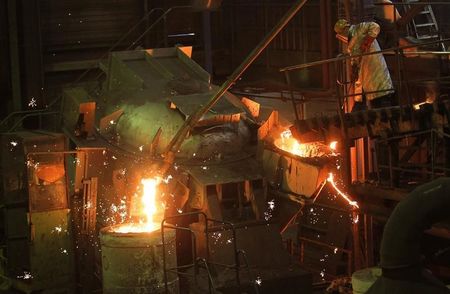BRUSSELS (Reuters) - Euro zone factory prices fell slightly less than expected in August as the cost of heavy machinery rose, but still underscored the need for governments and the ECB to do more to lift the bloc's depressed economy.
Prices at factory gates in the 18 countries using the euro slid 0.1 per cent from July, the European Union's statistics office Eurostat said on Thursday, pulled down by a drop in energy costs as the slide in oil prices weighed.
Economists polled by Reuters forecast a 0.2 percent drop.
August's fall in producer prices is part of the euro zone's wider problem with deflationary pressures. Only June has registered an increase in all of the year so far. In July, producer prices fell 0.2 percent.
On an annual basis, prices fell 1.4 percent in August, the biggest drop since March, when prices slid 1.7 percent. On both a monthly and an annual basis, numbers were revised down for July, Eurostat said.
The global financial crisis and the ensuing euro zone crisis have badly hurt banks' willingness to lend, damaged business confidence and left the region fighting record unemployment, which in turn has sapped consumers ability to spend.
Now the euro zone is facing the threat of deflation, which would make it even more difficult for the indebted bloc to pay off its debt. Euro zone consumer inflation slowed again in September as some food and energy prices fell, reinforcing expectations the European Central Bank will ease policy further.
The ECB will present details on Thursday of a new asset-buying plan it hopes will help revive the economy.
The ECB plans to buy asset-backed securities (ABS) - packages of reparcelled loans - to try to spur the market for such credit and support lending to the small- and mid-sized firms that form the backbone of the euro zone economy.
For industry in August, the price of heavy machinery rose 0.1 percent on the month, the only part of the index to rise. Energy costs fell 0.4 percent and the costs of consumer goods at factory gates also fell.

Oil prices have been falling since August because of weak economic signals in Europe and China. Some economists expect that to persist into 2015.
(Reporting by Robin Emmott; editing by Adrian Croft)
